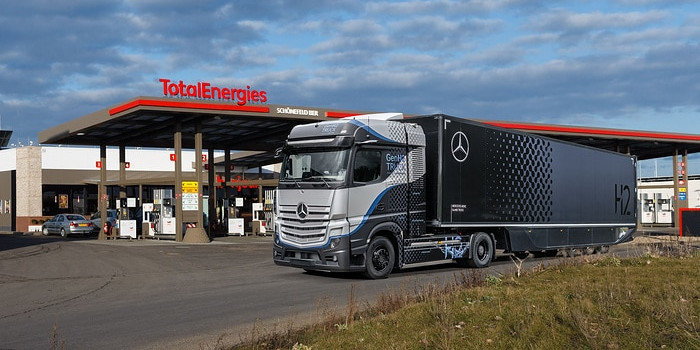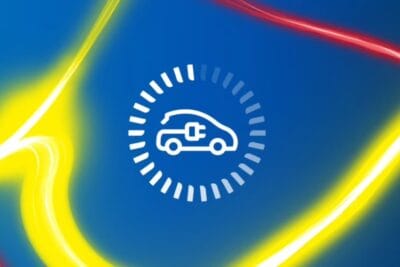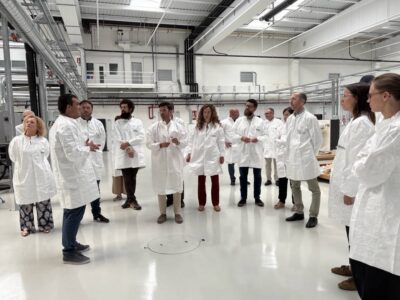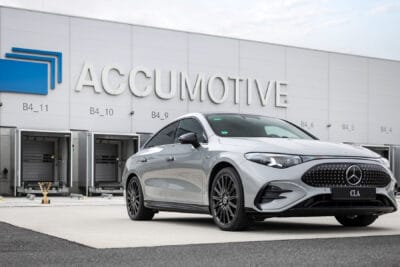Daimler Trucks and Total join forces on H2 infrastructure
Truck manufacturer Daimler Truck and the energy group Total have signed an agreement to work together on the development of a hydrogen infrastructure for heavy trucks in the European Union. The two corporations will initial focus on Germany, the Netherlands, Belgium, Luxemburg and France.
Daimler says that the cooperation includes the procurement of hydrogen, including the associated logistics, as well as the supply of hydrogen to filling stations, the development of hydrogen-based trucks and the establishment of a customer base. Daimler Truck also aims to supply fuel cell trucks to customers in the five named countries by 2025 as part of the cooperation. For its part, Total is aiming to operate hydrogen filling stations in these same European countries and plans to see to it that 150 hydrogen filling stations are built in this transnational region by 2030.
Both companies are also focusing on the question of how the total cost of ownership of a hydrogen truck can be reduced. Daimler Truck and Total are both members of the H2Accelerate consortium which has the broad goal of supporting the introduction of hydrogen-powered transport in Europe over the next decade.
Karin Rådström, the CEO of Mercedes-Benz Trucks and Member of the Board of Management at Daimler Truck, said: “We are fully committed to the Paris Climate Agreement, and we want to actively contribute to the decarbonisation of road freight transport in the European Union.” She went on to explain: “Regarding the long-haul freight segment, we are convinced that CO2-neutral transportation will be enabled in the future by hydrogen-powered fuel cell trucks as well as purely battery-powered trucks. In order to make this possible, we want to establish a pan-European hydrogen ecosystem together with strong partners such as TotalEnergies.”
Alexis Vovk, President Marketing & Services and Member of the Board of Total added: “Hydrogen will have its role in TotalEnergies’ journey to decarbonise mobility, especially in European long-haul transportation.”
To date, Total operates 24 H2 filling stations in Germany as part of the joint venture H2 Mobility. Regarding the contentious question of whether the legacy oil and gas company will be focussing on green hydrogen, made from renewable energy or blue hydrogen processes which uses gas, the company says it will be following both solutions, Total says it will be producing both: blue hydrogen from natural gas with carbon capture and storage as well as green hydrogen based on intermittent renewable electricity. The energy corporation says it has also been working on the development of concrete use cases for the decarbonisation of industrial processes and for the mobility and gas sectors for years. According to its own statements, Total strives to close ranks with other players through memberships in hydrogen initiatives and trade associations. It is a member of the Hydrogen Council, Hydrogen Europe, the European Clean Hydrogen Alliance and France Hydrogène.
Daimler Truck, for its part, has committed itself to offering only new vehicles that are CO2-neutral in operation (tank-to-wheel) in Europe, Japan and North America by 2039. By 2022, the vehicle portfolio in the main sales regions is to include series-production vehicles with battery-electric drive. This is to be followed in 2027 by the series-production version of the GenH2 Truck, a truck with a hydrogen-based fuel cell. With these BEV and FCEV vehicles, Daimler Truck AG aims to achieve a sales share of up to 60 per cent of zero-emission vehicles (ZEV) in 2030 as an intermediate step.
Daimler Truck is currently testing an advanced prototype of the GenH2 truck on public roads in Germany. As there is talk above of planned deliveries of FC trucks to customers in the Netherlands, Belgium, Luxembourg and France “by 2025”, but the GenH2 Truck is not due to go into series production until 2027, these are probably pre-series vehicles of the GenH2 Truck for customer testing.
Daimler has spent a long time hedging its bets with its heavy-duty and long-haul H2 vehicles, which have been under development for well over a decade, always citing the chicken-or-the-egg question with fuel cell vehicles and hydrogen refuelling infrastructure. Now it seems, under the leadership of CEO Karin Rådström, the company has moved forward with more decisive steps. At the end of last year, Linde and Daimler Truck signed an agreement to jointly develop the next generation of liquid hydrogen refuelling technology for fuel cell trucks. Daimler has looked for another energy company as a cooperation partner for the H2 market in the UK: at the end of October, the truck manufacturer signed an agreement with BP to jointly drive forward both the development of a hydrogen infrastructure and the introduction of fuel cell trucks in the UK.
Since the spring of this year, Daimler Truck has also included Shell as a third player among its hydrogen infrastructure partners. Their concrete project is to set up a network of filling stations between Rotterdam, Hamburg and the Rheinland refinery in Cologne-Godorf. From 2024, H2 filling stations for heavy trucks are to be operated between these three locations. By 2030 there should be around 150 hydrogen filling stations.
Including reporting from Cora Werwitzke





0 Comments